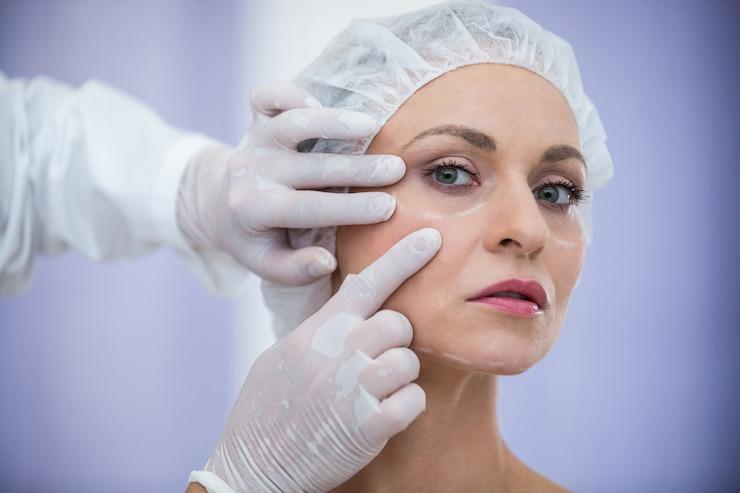Facial plastic surgery is increasingly popular not only for its aesthetic benefits but also for its positive impact on emotional well-being. Procedures like rhinoplasty, facelifts, and eyelid surgery can boost self-esteem, enhance confidence, and improve social interactions and quality of life. However, individual experiences vary, making realistic expectations essential. Consulting a leading facial plastic surgeon ensures a clear understanding of the procedure’s benefits and limitations, the psychological effects of facial plastic surgery, and its influence on appearance and emotional health.
Understanding The Psychological Impact Of Facial Plastic Surgery
Facial plastic surgery can have a significant psychological impact, as many individuals seek to address not only physical imperfections but also emotional distress tied to their appearance. Research shows that many patients experience increased confidence and satisfaction after surgery, overcoming insecurities and gaining renewed self-assurance. However, outcomes can vary; some may feel disappointed if results don’t meet expectations. This underscores the importance of thorough consultations and psychological assessments to ensure patients are prepared for the procedure’s physical and emotional aspects.
Importance Of Emotional Well-Being In Facial Plastic Surgery
Emotional well-being is crucial in the decision-making process for facial plastic surgery. Prospective patients should assess their motivations to ensure the desire for surgery stems from personal goals rather than external pressures. Consulting with a mental health professional can help clarify feelings and expectations, fostering healthier decision-making. A positive mindset and realistic expectations during surgery and recovery can lead to better psychological outcomes. Prioritizing emotional health throughout the process enhances the surgical experience and overall satisfaction with the results.
Pre-Operative Psychological Evaluation For Facial Plastic Surgery
The pre-operative phase is crucial for psychological evaluation. Surgeons often recommend psychological assessments to ensure candidates are mentally prepared for surgery. These evaluations explore emotional health, self-esteem, body image, and surgery expectations, helping identify unrealistic goals or insecurities. Addressing these concerns beforehand can prevent potential post-operative psychological distress and improve the overall experience. Equipping candidates with coping strategies enhances emotional well-being, leading to a more grounded perspective and increasing the likelihood of a physical and emotional positive outcome.
Common Emotional Concerns Before Facial Plastic Surgery
Many individuals experience anxiety about facial plastic surgery before the procedure, recovery, and results. These feelings can be alleviated through open discussions with the surgeon. Additionally, self-doubt and societal pressures may amplify concerns, making it essential to address these emotions for a positive experience. Support from loved ones is crucial during this time, offering reassurance and understanding. Connecting with others who have undergone similar procedures can provide valuable insights and emotional support, helping to ease preoperative anxiety and foster confidence in the decision.
Post-Operative Emotional Experiences And Challenges
The post-operative phase can bring both excitement and emotional challenges. While many anticipate a boost in confidence, it’s common to experience sadness or frustration, especially if results aren’t immediate or recovery is more complex than expected. Swelling, bruising, and discomfort can temporarily affect appearance and self-esteem, leading to feelings of regret or disappointment. Understanding that these emotions are normal during recovery is essential. Psychological support, such as therapy or support groups, can help individuals navigate these emotional challenges and ensure a smoother transition to their new self-image.
Coping Strategies For Emotional Well-Being During The Recovery Process
Implementing coping strategies can significantly enhance emotional well-being during recovery. Mindfulness practices like meditation and deep breathing help manage anxiety and promote calm by focusing on the present moment. A supportive environment is also crucial—having friends or family assist during healing can reduce stress and offer comfort. Sharing experiences with trusted individuals helps patients feel less isolated. Additionally, journaling can be a therapeutic way to express emotions and track progress, allowing individuals to process their feelings. These strategies contribute to a more positive emotional experience, aiding a smoother recovery.
Support Systems For Emotional Support In Facial Plastic Surgery
Establishing a strong support system is essential for those undergoing facial plastic surgery. According to healthcare professionals at Kimball Health Services, emotional support from friends, family, and therapists helps individuals feel validated and understood. Support groups for those considering or recovering from surgery offer a sense of camaraderie, where shared experiences foster emotional connection. These groups provide a safe space to discuss concerns and successes, and mental health professionals can offer tailored coping strategies to manage anxiety, insecurity, or disappointment. Prioritizing emotional support strengthens resilience and enhances the overall surgical experience.
Long-Term Psychological Effects Of Facial Plastic Surgery
The long-term psychological effects of facial plastic surgery vary. For many, the initial boost in self-esteem leads to lasting improvements in confidence, satisfaction with appearance, and overall well-being. However, some may experience ongoing body image concerns or dissatisfaction with results. Maintaining realistic expectations and understanding surgery as one aspect of self-improvement is key. Continuous self-reflection and community support can help sustain positive emotional outcomes. Prioritizing emotional health alongside physical changes ensures surgery contributes to a fulfilling life.
Psychological Benefits Of Facial Plastic Surgery
The psychological benefits of facial plastic surgery can be transformative. Many individuals report enhanced self-esteem and confidence, leading to a more positive self-image. This empowerment fosters a sense of autonomy over one’s appearance and encourages greater social engagement, facilitating improved relationships. Taking control of one’s appearance can also spark personal growth, promoting self-care and emotional well-being. Recognizing the connection between physical and emotional health, individuals can embark on self-discovery and empowerment that extends well beyond the surgery.
Conclusion: The Holistic Approach To Facial Plastic Surgery And Emotional Well-Being
In conclusion, the journey of facial plastic surgery is deeply intertwined with emotional well-being. Careful preparation, including understanding the psychological impact and setting realistic expectations, is essential for a successful experience. Individuals can navigate the process confidently and satisfactorily by prioritizing emotional health, utilizing coping strategies, and building strong support systems. Facial plastic surgery is part of a holistic approach to self-improvement, where emotional well-being and physical changes work together to foster lasting happiness and self-acceptance.





